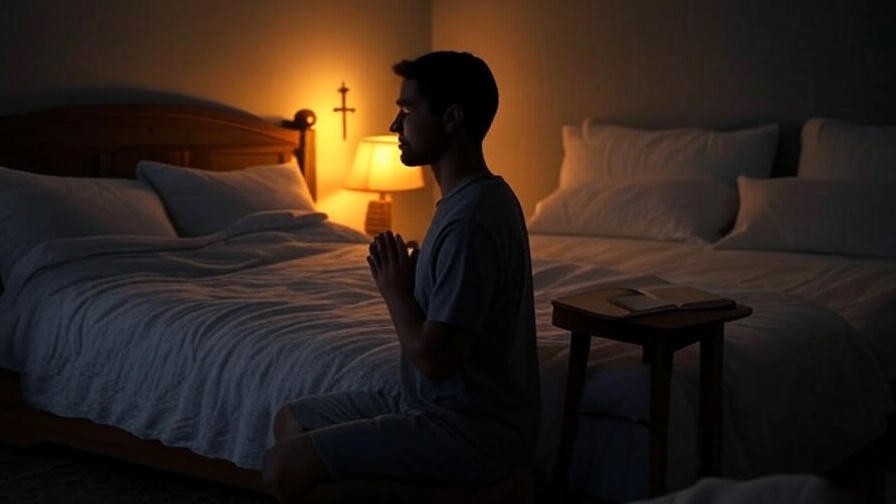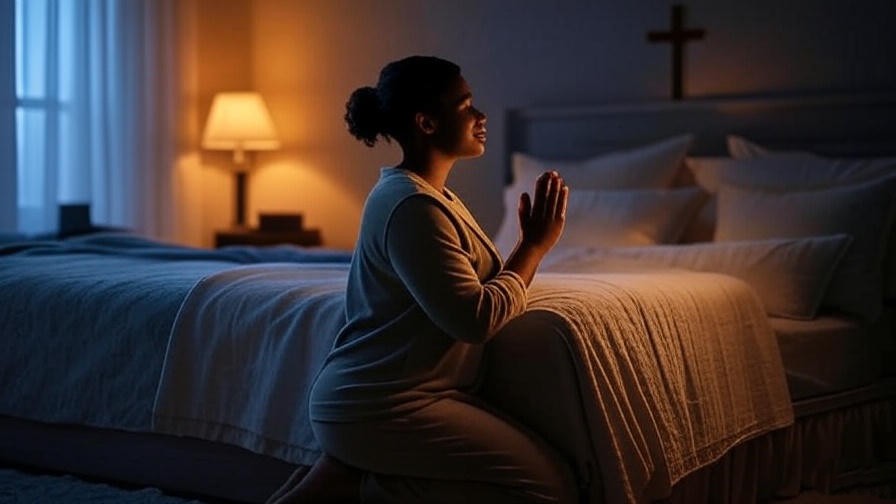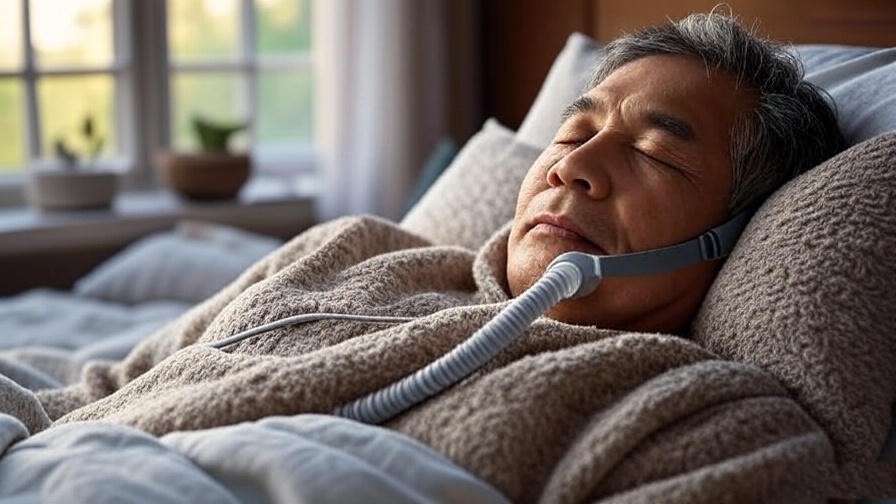Tossing and turning at 2 a.m., your mind races with tomorrow’s to-do list, unspoken worries, and the elusive promise of rest. Sound familiar? In our fast-paced world, quality sleep feels like a luxury, yet the Piper theology of sleep offers a transformative perspective: rest is not just a physical necessity but a profound act of faith. Renowned theologian John Piper teaches that sleep is a divine gift, reflecting trust in God’s sovereignty. This article explores how Piper’s theology can help you overcome insomnia, reduce stress, and find true peace. By blending spiritual wisdom with practical steps, you’ll discover how to unlock restful nights and wake up refreshed—body, mind, and soul.
Understanding the Piper Theology of Sleep

Who Is John Piper, and Why His Theology Matters
John Piper, a prominent pastor, author, and founder of DesiringGod.org, has shaped modern Christian thought with his emphasis on God’s sovereignty and human flourishing. With a doctorate in theology from the University of Munich and over 30 years of pastoral experience, Piper’s teachings resonate with millions seeking to align their lives with biblical principles. His theology extends beyond abstract doctrine, addressing practical aspects of life—like sleep. Piper’s insights into rest are particularly relevant for those struggling with sleeplessness, offering a faith-based framework that complements scientific approaches to well-being.
Core Principles of Piper’s Theology of Sleep
At the heart of the Piper theology of sleep is the belief that rest is a divine gift, not a human achievement. In Psalm 127:2, the Bible declares, “It is in vain that you rise up early and go late to rest, eating the bread of anxious toil; for he gives to his beloved sleep.” Piper interprets this as an invitation to trust God’s control over our lives, even when we’re tempted to worry. Sleep, in his view, is an act of surrender, acknowledging that God sustains the world while we rest. This perspective shifts sleep from a source of frustration to an opportunity for spiritual growth, aligning with themes of dependence and peace found in Christian teachings.
The Spiritual Roots of Restful Sleep
Sleep as an Act of Faith
Piper’s theology frames sleep as an act of faith, a moment when we relinquish control and trust God to “keep the world spinning,” as he puts it. This resonates deeply in a culture where anxiety and overwork disrupt rest. Consider the biblical story of Jesus sleeping during a storm (Mark 4:38). While the disciples panicked, Jesus rested, demonstrating absolute trust in God’s plan. For modern readers, this principle is a powerful antidote to sleepless nights driven by stress or fear. By embracing sleep as an act of faith, you can reframe bedtime as a spiritual practice, fostering peace and trust.
How Spiritual Peace Impacts Physical Rest
The connection between spiritual peace and physical rest is undeniable. Unresolved guilt, fear, or anxiety can keep your mind racing, preventing the relaxation needed for sleep. Piper’s theology encourages surrendering these burdens to God, which can calm the mind and prepare the body for rest. Dr. Matthew Walker, a leading sleep researcher, notes that chronic stress elevates cortisol levels, disrupting sleep cycles. Piper’s approach—rooted in prayer and scripture—helps lower stress by fostering a sense of divine security. For example, meditating on Psalm 4:8 (“In peace I will both lie down and sleep; for you alone, O Lord, make me dwell in safety”) can shift your focus from worry to trust, paving the way for deeper rest.
The Science Behind Sleep and Spirituality
How Faith Influences Sleep Quality
Scientific research supports the link between spirituality and better sleep. A 2021 study published in Sleep Health found that regular spiritual practices, such as prayer or meditation, reduce stress hormones and improve sleep quality by promoting relaxation. These findings align with Piper’s teachings, which emphasize letting go of control to find peace. When you engage in faith-based practices before bed, such as reading scripture or reflecting on God’s promises, your brain signals the parasympathetic nervous system to activate, lowering heart rate and preparing you for sleep. This synergy of faith and science underscores the practical value of Piper’s theology for restful nights.
The Role of Routine in Piper’s Theology
Piper’s emphasis on disciplined living extends to sleep hygiene. A consistent bedtime routine signals to your body that it’s time to wind down, aligning with both spiritual and scientific principles. For example, a 2019 study by the National Sleep Foundation found that 80% of people with structured bedtime routines report better sleep quality. Piper’s approach might include a routine of prayer, gratitude journaling, or reading a short passage from the Bible, such as Psalm 23. These practices not only calm the mind but also reinforce the spiritual discipline of trust, making it easier to fall asleep and stay asleep.
Practical Steps to Apply Piper’s Theology of Sleep

Step 1: Cultivating a Heart of Trust
To apply Piper’s theology, start by cultivating a heart of trust before bed. Spend 5–10 minutes reflecting on God’s sovereignty using scriptures like Psalm 4:8 or Matthew 6:34 (“Do not be anxious about tomorrow”). Write down your worries in a “trust journal” and pray, releasing them to God. A sample prayer might be: “Lord, I trust You with my cares. Grant me peace to rest tonight.” This practice, rooted in Piper’s teachings, helps quiet the mind and aligns with his call to surrender control, fostering a spiritual foundation for better sleep.
Step 2: Creating a Restful Environment
A restful environment combines Piper’s spiritual principles with practical sleep hygiene. Keep your bedroom dark, quiet, and cool—ideally 60–67°F, as recommended by sleep experts. Incorporate spiritual elements, such as playing soft worship music or using a Bible app for evening devotionals. For example, try a 10-minute routine: dim the lights, read a calming scripture, and pray. Avoid screens at least an hour before bed, as blue light suppresses melatonin production. By blending these habits with Piper’s focus on trust, you create a holistic environment conducive to rest.
Step 3: Addressing Sleep Barriers with Faith
Common sleep barriers like anxiety or overwork can be addressed through Piper’s theology. If anxiety keeps you awake, practice scripture meditation: slowly repeat Psalm 23 (“The Lord is my shepherd”) to calm your mind. For overwork, Piper’s teaching encourages setting boundaries, trusting God with unfinished tasks. A real-life example comes from Sarah, a teacher who struggled with insomnia. By adopting Piper’s principles—praying before bed and limiting evening work—she reported falling asleep faster and waking up refreshed. These steps transform obstacles into opportunities for spiritual and physical renewal.
Common Misconceptions About Sleep and Faith
Myth 1: Sleep Is a Sign of Laziness
In a culture obsessed with productivity, some view sleep as a sign of weakness or laziness. However, John Piper’s theology of sleep challenges this misconception by framing rest as a divine gift. Psalm 127:2 reminds us that God “gives to his beloved sleep,” suggesting that rest is an intentional part of His design for human flourishing. Piper argues that prioritizing sleep reflects trust in God’s provision, not a lack of discipline. This perspective counters the hustle culture narrative, which often glorifies overwork at the expense of well-being. By embracing sleep as a God-given rhythm, you can reject guilt and find peace in rest.
Myth 2: Spiritual People Don’t Struggle with Sleep
Another common myth is that strong faith eliminates sleep struggles. Piper’s teachings acknowledge human limitations, emphasizing that even devout believers face challenges like insomnia. He points to scriptures like 2 Corinthians 12:9, where God’s grace is sufficient in our weakness. Dr. Charles Stanley, a respected pastor, reinforces this: “Faith doesn’t exempt us from human struggles; it equips us to face them.” If you’re wrestling with sleeplessness, Piper’s theology encourages perseverance through prayer and trust, reminding you that spiritual growth often occurs in the midst of difficulty. This approach fosters hope and resilience, making it easier to address sleep challenges without shame.
Enhancing Your Sleep Through Holistic Well-Being

Integrating Meditation and Prayer
Meditation and prayer are powerful tools in Piper’s theology, promoting both spiritual and physical rest. A 2020 study in Journal of Religion and Health found that meditative prayer reduces anxiety and improves sleep quality by activating the body’s relaxation response. To apply this, try a guided meditation based on Psalm 23: “The Lord is my shepherd; I shall not want.” Sit quietly, breathe deeply, and repeat each verse slowly, focusing on God’s care. This practice aligns with Piper’s call to trust, calming your mind and preparing your body for sleep. Apps like Abide or Hallow, which offer Christian meditations, can enhance this routine, making it accessible even for beginners.
Sample Guided Meditation:
- Find a quiet space and sit comfortably.
- Read Psalm 23:1–3 aloud: “The Lord is my shepherd… He leads me beside still waters. He restores my soul.”
- Close your eyes and visualize a peaceful scene, like resting by a calm stream.
- Pray: “Lord, guide me to Your peace. Restore my soul as I rest tonight.”
- Spend 5 minutes breathing slowly, focusing on God’s presence.
The Role of Diet and Exercise
Piper’s holistic view of human flourishing includes caring for the body, which supports restful sleep. Nutrition and exercise play key roles in sleep quality. Avoid caffeine after 2 p.m., as it can disrupt melatonin production, and opt for sleep-friendly foods like almonds or cherries, which contain natural melatonin. Light exercise, such as a 20-minute evening walk while praying, aligns with Piper’s emphasis on disciplined living while promoting relaxation. Dr. Michael Breus, a clinical psychologist and sleep expert, notes that regular physical activity improves sleep efficiency by 18%. By integrating these habits with spiritual practices, you create a balanced approach to well-being that honors both body and soul.
Practical Tips:
- Diet: Eat a light, protein-rich snack (e.g., Greek yogurt) 2 hours before bed to stabilize blood sugar.
- Exercise: Try gentle stretches or yoga poses, like child’s pose, while reflecting on a scripture like Isaiah 40:31.
- Routine: Combine physical and spiritual habits, such as walking while listening to a worship playlist.
FAQs About Piper Theology of Sleep

Question 1: How does Piper’s theology differ from secular sleep advice?
Piper’s theology emphasizes spiritual trust and surrender, rooting rest in faith rather than solely behavioral changes. While secular advice focuses on habits like avoiding screens or maintaining a sleep schedule, Piper’s approach integrates these with biblical principles, such as trusting God with your worries. This spiritual foundation adds depth, addressing the root causes of sleeplessness like anxiety or lack of peace.
Question 2: Can non-Christians apply Piper’s theology to improve sleep?
Yes, the principles of letting go of control and cultivating peace are universal. Non-Christians can adapt practices like gratitude journaling or mindfulness to reduce stress and improve sleep. However, Piper’s teachings are deeply rooted in Christian theology, so their full impact may resonate most with those open to a faith-based perspective.
Question 3: What if I still can’t sleep after trying these steps?
If sleep challenges persist, consult a healthcare provider to rule out medical conditions like sleep apnea or insomnia. Continue practicing Piper’s principles, such as prayer and scripture meditation, to maintain spiritual peace. A Christian counselor can also help address underlying emotional or spiritual barriers, complementing medical advice.
Conclusion
The Piper theology of sleep offers a transformative approach to rest, blending spiritual wisdom with practical steps to help you overcome sleeplessness and find true peace. By viewing sleep as an act of faith, cultivating trust through prayer, and adopting healthy habits, you can unlock restful nights that rejuvenate your body, mind, and soul. Start small—try a nightly prayer or a trust journal—and experience the difference for yourself. As John Piper beautifully states, “God gives to his beloved sleep, not because we’ve earned it, but because He loves us.” Share your journey in the comments below or on social media, and let’s inspire each other to rest in God’s care.













